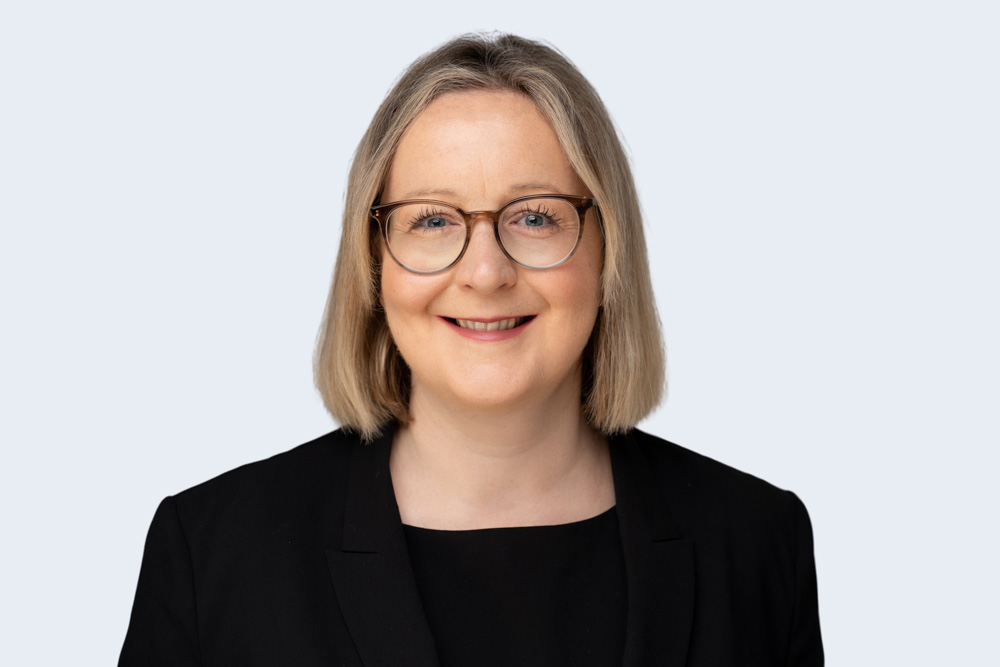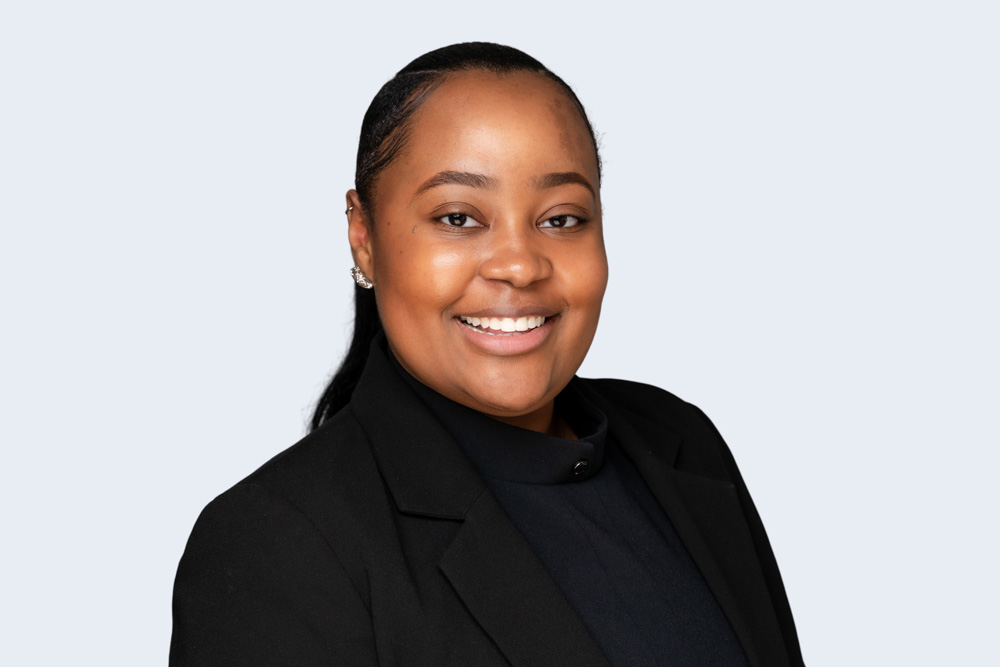


Associate family lawyer Anest Mathias, assisted by trainee Amanda Mhlanga, instructed James Turner KC, Naomi Wiseman and Joe Landman to represent the applicant in P v Q and Others [2024] EWFC 85 (B)(Fam) – an important ‘modern families’ case – with judgment handed down by Mrs Justice Gwynneth Knowles on 19 April 2024. The respondent then appealed. Our client was represented by the same legal team in the Court of Appeal with judgment being handed down on 26 July 2024 P v Q and F (Child: Legal Parentage) [2024] EWCA Civ 878
Our client, P, was in a female same sex marriage with Q. They wanted a child, it was agreed that P would carry their child. Initially they attempted to conceive using sperm ordered and imported online from a clinic in Denmark. This method was unsuccessful as well as expensive. They sought a known donor and placed an advert online finding F. They met F and formed a favourable impression of him. The parties signed a “Sperm Donor Agreement” obtained online. F agreed not to demand or seek any parental rights in respect of the child conceived through the artificial insemination (“AI”) process. This document has no legal status whatsoever.
There were two unsuccessful attempts of AI using F’s sperm, the two unsuccessful attempts of AI left P feeling unhappy, desperate and placed her relationship with Q under great strain. P reached out for comfort from F and arranged to meet him at her parents’ home. P found F friendly and sympathetic and whilst at her parent’s home, P initiated sexual intercourse or natural insemination (NI) with him. P and F had sex a total of three times at her parents’ home. Q was not aware of P and F’s meeting, nor about the NI.
The third and final attempt of AI took place a day or two after P and F had sexual intercourse. P found out that she was pregnant a couple of weeks later with X.
P and Q were registered as the parents of X. By arrangement with P and Q, F saw X once before P and Q separated. P and Q separated and subsequently divorced. Following their separation P began communicating regularly with F and he became involved in X’s life. X knows F is her biological father.
Following the breakdown of P and Q’s relationship, court proceedings were issued to determine the child arrangements for X. P and Q disagreed as to the involvement of F in X’s life. P then asserted her belief that X was conceived as a result of sexual intercourse rather than AI. The judge was satisfied that P and F had had sexual intercourse on several occasions prior to the third attempt at AI for which F acted as a sperm donor. She was unable to find on a balance of probabilities whether X was conceived by AI or NI.
A child can have a maximum of two legal parents. P would always be X’s legal mother. The question which the court had to determine was who in law was X’s second parent.
If X had been conceived through AI then Q would be her legal parent by virtue of the s.42 of the Human Fertilisation and Embryology Act 2008 which states that:
“If at the time of placing in her of the embryo or the sperm and eggs or of her artificial insemination, W was a party to a civil partnership with another woman or a marriage with another woman, then subject to section 45(2) to (4), the other party to the civil partnership or marriage is to be treated as a parent of the child unless it is shown that she did not consent to the placing in W of the embryo or the sperm and eggs or to her artificial insemination (as the case may be).”
If X had been conceived through NI then F would be X’s legal father.
There are no reported cases where the court has had to determine who would be a child’s legal parent when the method of conception could not be determined as was the case here.
There is a common law presumption that a child born to a woman during a marriage is also the child of her husband. This can be displaced with evidence to the contrary, such as DNA testing. The Marriage (Same Sex Couples) Act 2013 specifically does not extend this common law presumption and so the fact that P and Q were married did not create a presumption that X is Q’s legal child.
The starting point at common law is that P is X’s mother and that F, her biological father is her father. This remains the case unless it could be displaced by the provisions of the Human Fertilisation and Embryology Act 2008.
The judge considered a number of cases where the requirements of the Human Fertilisation and Embryology Acts have been examined. Case law has consistently upheld the need for compliance with Act. The Act only governs situations within its footprint which included the requirement for the child to have been carried by a woman as a result of the placing in her of an embryo or of sperm and eggs or her artificial insemination, to determine who is to be treated as the other parent of the child. Section 42 of the Human Fertilisation and Embryology Act 2008 creates a rebuttable presumption that consent exists in the case of a marriage and that assisted reproduction is the method of conception. That presumption can be rebutted by evidence which shows that consent has not been given and / or that assisted reproduction may not have occurred. The judge had found that Q did not consent to anything other than assisted reproduction, but the method of X’s conception was unclear. In those circumstances the presumption of Q’s parenthood was rebutted, and the common law position applied.
The Judge made the declarations sought by P, namely that F is the legal parent of X, and that Q is not X’s legal parent.
Q then sought to appeal the decision to the Court of Appeal and was granted permission to appeal on the basis that the learned judge misdirected herself as to the party upon whom the burden of proof lay in an application for a declaration of non-parentage and/or a declaration of parentage. Ultimately the appeal was dismissed.
Lord Justice Peter Jackson gave the judgment. He agreed that there were some difficulties with the judge’s reasoning but that they are inessential to the conclusions and he dismissed the appeal.
The case was described as unprecedented.
The judge was right to start from the position that a child’s parentage will be defined by the common law, unless it is displaced by the statutory provisions regulating parentage in cases of assisted reproduction.
The baseline position at common law is that a child’s legal parents are the gestational mother and the genetic father. The common law modifies the principle in relation to a married man who benefits from a rebuttable presumption of parenthood in respect of a child born to his wife during the marriage. This has been extended to apply to male civil partners but there is no such presumption in respect to a child born during the marriage of two women.
The baseline position is also modified by certain provisions of the Human Fertilisation and Embryology Act 2009 and its predecessors in relation to a child born following assisted reproduction. For the parenthood provisions of the Human Fertilisation and Embryology Act 2008 the child has to be born as a result of assisted reproduction and that is a foundational condition.
Although Q had been registered on X’s birth certificate this did not create a presumption of legal parentage.
At common law P is X’s legal mother. X’s genetic father will be her legal father. The burden on P was to show that F was the genetic father and that there had been NI at the relevant time. After that, it was for Q to establish that she has the benefit of legislation.
This case is exceptionally unusual because the outcome turns on the burden of proof. In other cases involving both AI and NI the evidence may find one means of conception more probably than the other and medical evidence may assist in distinguishing between them. In this case there is nothing intrinsically surprising that X’s genetic parents are her legal parents.
Mrs Justice Gwynneth Knowles introduced the case by stating:
“This case is a cautionary tale about the consequences for a child and for a same-sex couple of both deceit as to how that child came to be conceived and the unreliability of informal arrangements for artificial insemination. The fallout from this couple’s separation has been devastating for each of them and for their named sperm donor.”
We wholeheartedly agree.
Lord Justice Jackson wrote: “Notwithstanding Q’s commitment to X, her understood status as a legal parent arose from informal arrangements, with all their inherent risks.”
This case highlights the importance of taking legal advice prior to conception and understanding the need for compliance with the parenthood provisions of the Human Fertilisation and Embryology Act 2008. As in the case of M v F & H (Legal Paternity) [2013] EWHC 1901 (Fam) it should not be forgotten that a much wanted child has been born. The Court of Appeal noted that at the welfare hearing all outstanding matters were resolved and that the judge’s order leaves all three adults with parental responsibility for X.
How we can help?
In our modern society, there are a number of different routes to parenthood. We advise intended parents and donors about the legal implications of the routes they are considering or have chosen. For further information or a preliminary chat about modern parenting, please contact Anest Mathias on 020 3440 8049 or Anest.Mathias@tvedwards.com.
Disclaimer: The information on the TV Edwards website is for general information only and reflects the position at the date of publication.








